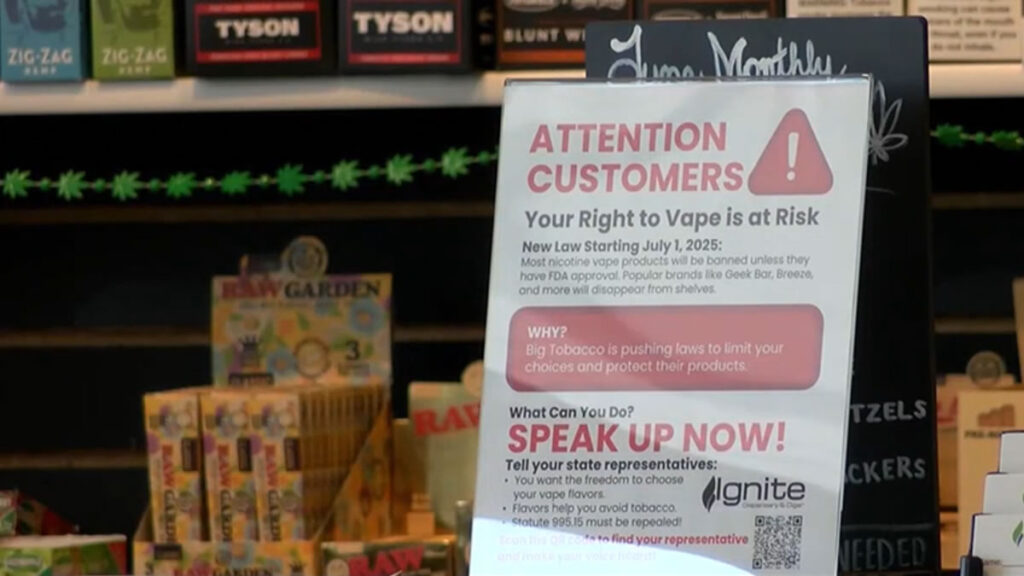A new Wisconsin law that took effect on July 1st, banning the sale of most popular vaping products that lack U.S. Food and Drug Administration (FDA) authorization, is facing criticism from local businesses and even some public health advocates. Supporters claim the law is designed to protect children from vaping, but opponents argue it is a flawed approach that will harm small businesses and fail to achieve its public health goals.
Timothy Frey, a spokesperson for Ignite Dispensary in Superior, said the banned vape products account for about 25% of their sales. He expressed frustration that the law doesn't address the core issue of online sales, claiming he was able to order a nicotine device using his four-year-old son's information. "I agree that we need to get this stuff out of children’s hands... but there’s a better approach to do this than prohibition," Frey said, arguing the law strengthens "big tobacco" without improving enforcement.
Pat McKone with the American Lung Association echoed these concerns, calling the law "confusing, costly, and ineffective." McKone stated that the organization does not believe such PMTA registry laws have shown a public health benefit and are a "diversion for what we know works," such as raising the age requirement and increasing prices. Both Frey and McKone point out that the law leaves only three manufacturers able to sell in the state, one of which is R.J. Reynolds, maker of Camel and Newport cigarettes, suggesting the powerful tobacco lobby benefits from the legislation. Retailers have until September 1st to clear their shelves of the now-banned products or face fines.

Digital Content Creator & Vape Industry Analyst
Jake Miller is a prominent voice in the American vaping community, known for his transparent, tech-focused approach to harm reduction and hardware innovation. With over six years of experience in the industry, Tyler transitioned from a hobbyist to a full-time content creator, building a loyal following through his unfiltered reviews and deep-dive technical tutorials.




